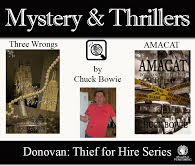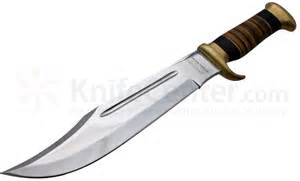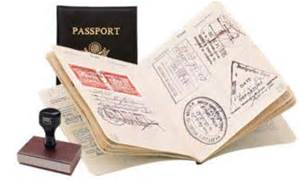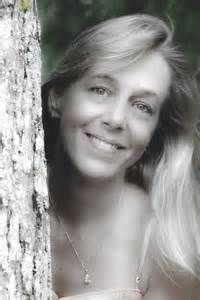4Q Interview is pleased to have Chuck Bowie of
Fredericton, NB, as our featured artist this week. This is Chuck’s second visit
to the Scribbler. If you missed the first one, click on this link to
read more of his bio or you can check out his web site which is listed below.
The
Scribbler is taking a different approach to the 4Q today and adding an excerpt
from Chuck’s latest release—AMACAT—following
the interview.
4Q: I have had the pleasure of
meeting Sean Donovan, your ‘thief for hire”, in your first novel – Three
Wrongs, a highly enjoyable tale. I’m looking forward to reading your newest
work. Tell us about AMACAT.
 CB: AMACAT is an acronym for the three
crimes that are committed in this second novel in the series. It stands for A
Mask, A Cask and A Task. There are actually four crimes including two ‘tasks’.
One happens just before the novel begins, so I’m cheating (but in a good way, I
hope!)
CB: AMACAT is an acronym for the three
crimes that are committed in this second novel in the series. It stands for A
Mask, A Cask and A Task. There are actually four crimes including two ‘tasks’.
One happens just before the novel begins, so I’m cheating (but in a good way, I
hope!)
My man
Donovan is a thief for hire. He’ll go anywhere in the world to steal things for
people, and he’s paid very well to break the law. In AMACAT, however, he’s using his skills to get his friends and a
sister out of trouble. Somehow, he still finds a way to make money, though,
because his conscience is a complicated mechanism.
I like
applying multiple storyline arcs, or narrative arcs to tell mini stories that
weave in and out of each other. For instance, in AMACAT, an acquaintance Donovan meets in Book 1 is being framed for
a crime in her workplace: The Canadian Embassy in London. While they are ‘on
the lam’, Donovan and his new friend, Beth, try to return a stolen mask in
France, as well as searching for a missing barrel of wine, the titular ‘Cask’.
In Book 1: Three Wrongs, I’ve written a classic
thriller. AMACAT, while adhering to
the concept and format of a thriller, has moments within it that are a bit
lighter in tone. For instance, there is a chase scene, but it’s on a cruise
ship. And the chase takes two days on the boat! I had a lot of fun sewing the
very tense scenes in among the occasional lighter scenes. And, as with Three Wrongs, I still make mention of
food, wine, music and of course, travel.
4Q: The premise of a “thief for hire”
is intriguing. What inspired this
character?
CB: In my
previous career as a consultant for the Feds, I accepted a one-month assignment
to work in Romania. I woke up one morning in a gorgeous four-star hotel—the
second best one in the country—and the sun was shining, the weather was
perfect, and the dogs and orphans were playing in the street under my window.
I thought to
myself: what if someone was alone in a strange country where nobody knew him,
and he had no conscience and a desire to make money by any means necessary? What
circumstances might place him in that situation, and what skills would he have,
if he wanted to take advantage of his circumstances? I began writing Three Wrongs that evening.
One thing I
take pride in, is I make every effort to write what I know. In other words, I
give myself permission to write about Bucharest (or London, Paris, or New
Orleans) because I’ve been there. I know what it looks like, its peculiarities
and eccentricities, so I feel like I can capture the personality of a place. Because
I’ve seen it with my own eyes.
I wasn’t
trying to write thrillers before this series, but Donovan came along and
insisted that I write him. So I did. He’s become a ‘friend’ of mine now. Ha!
4Q: Please share a childhood anecdote
or memory with our readers.
CB: When I
was growing up, in a military household and later in a
rural home, no matter where we lived, there were always weapons around. I am the middle child of a large family, but we were all taught the consequences of mis-handling weapons and dangerous items. Some of the things I had access to at twelve-years-old included a bow and (hunting, or tipped) arrows, numerous hunting rifles—some vintage, some modern, pellet pistols, bb-guns, all manner of hunting and throwing knives, etc, including the famous Bowie Knife. And I owned my own machete!
 CB: I began
by trying to write a single novel: Three
Wrongs. Encouraged by my agent and publisher, I began the sequel: AMACAT. It was such fun to discover a
brief encounter with a character in the first book became a major character in
Book 2. Book 3: Steal It All drops as
an eBook sometime around Christmas and I’m halfway through Book 4, tentatively
entitled The Body On The Underwater Road,
which is set in Niagara On The Lake and St. Andrews By The Sea.
CB: I began
by trying to write a single novel: Three
Wrongs. Encouraged by my agent and publisher, I began the sequel: AMACAT. It was such fun to discover a
brief encounter with a character in the first book became a major character in
Book 2. Book 3: Steal It All drops as
an eBook sometime around Christmas and I’m halfway through Book 4, tentatively
entitled The Body On The Underwater Road,
which is set in Niagara On The Lake and St. Andrews By The Sea.
Thank you Chuck for being our guest on the Scribbler this week.
Next week, Susan Toy of Bequia returns with her short story, Family Jewels. Don't miss out on this author's fine storytelling.
rural home, no matter where we lived, there were always weapons around. I am the middle child of a large family, but we were all taught the consequences of mis-handling weapons and dangerous items. Some of the things I had access to at twelve-years-old included a bow and (hunting, or tipped) arrows, numerous hunting rifles—some vintage, some modern, pellet pistols, bb-guns, all manner of hunting and throwing knives, etc, including the famous Bowie Knife. And I owned my own machete!
However, I
was a curious child and also found a WWII bomb in the attic, a heavy jar of
mercury, a chemistry set, hatchets and axes; I can’t even remember all the
dangerous stuff I had access to. And I had access to hundreds of books at home
and thousands of books in nearby libraries. I believe these were part of my
formative years, and when writing, I try to be creative in the ways my
characters get killed or injured. It’s morbid, but such fun when it remains in
the imagination, I think. One reviewer flattered me by worrying how I learned
how to kill people so imaginatively. I laughed at that.
4Q: What can your fans look forward
for Chuck Bowie? What about Sean Donovan?
 CB: I began
by trying to write a single novel: Three
Wrongs. Encouraged by my agent and publisher, I began the sequel: AMACAT. It was such fun to discover a
brief encounter with a character in the first book became a major character in
Book 2. Book 3: Steal It All drops as
an eBook sometime around Christmas and I’m halfway through Book 4, tentatively
entitled The Body On The Underwater Road,
which is set in Niagara On The Lake and St. Andrews By The Sea.
CB: I began
by trying to write a single novel: Three
Wrongs. Encouraged by my agent and publisher, I began the sequel: AMACAT. It was such fun to discover a
brief encounter with a character in the first book became a major character in
Book 2. Book 3: Steal It All drops as
an eBook sometime around Christmas and I’m halfway through Book 4, tentatively
entitled The Body On The Underwater Road,
which is set in Niagara On The Lake and St. Andrews By The Sea.
Book 2 has a
major narrative arc set in Prince Edward Island, which was fun for me, since I
write international thrillers. But many of my readers are American and enjoy
reading about Canada, because it’s international to them. Book 3 returns to
England, with a visit to Romania, so that’s great fun for me. My publisher is
encouraging me to write more novels in this series, and since for me ideas are
easy to come by, I expect I will. My thief Donovan is seeking redemption from
the business of theft for hire, but redemption appears to be taking its good
old time for him!
I’m already
thinking about Book 5, so, we’ll see.
Chuck Bowie
is currently writing the fourth novel in the Donovan: Thief For Hire
series. You can read bits and bobs from him via social media:
Website: http:chuckbowie.ca
Twitter: @BowieChuck
Or you can find him on FaceBook as
well.
His novels can be found at
Westminster Books in Fredericton, Tidewater Books in Sackville, Chapters or
Amazon, or from his publisher: MuseItUp Publications.
Here is an
excerpt from the second novel in the series: AMACAT. In this scene, Beth and Donovan are hiding out in a hotel.
CHAPTER TWENTY
Covent Garden, London
Beth woke
first, skipping the semi-conscious state and flying immediately to a quickened,
fully alert state. She lay on her side, eyes slits, watching this stranger sleep in the
bed across from her. She’d spent a few hours in REM sleep, filled with dreams of
running through the back alleys of London, men in black trench coats leaping at
her from behind garbage cans and down from fire escapes. She couldn’t catch her
breath, and at the end of each alley, Donovan would open a door, calling to her. “In
here! Quickly,” he’d whisper. But every door kept taking her to a new alley, with
more trench coats to chase her. So she awoke, sweaty and exhausted, in that most
interesting of paradoxes: a hotel room containing two beds, each housing a stranger.
But Donovan slept on, a deep, trancelike coma of a sleep, the
kind you arrive at, if
you’re lucky, after having remained awake for thirty-six hours. She watched him for a
while, asking herself how, in this Marianas Trench of misfortune into which she
had careened, she could conjure up someone like him. He had known her for all
of fifteen minutes, over a year ago. He didn’t really owe her anything of substance;
why was he even bothering with her, let alone going on the lam with her? A
thought crossed her mind, one that made her catch her breath. Was he involved,
somehow? Wasn’t it convenient that he appeared out of nowhere to advocate for
her? But then she calmed. She’d called him. She’d chosen to meet at the Fin and Fowl.
Beth glanced over to where his jacket lay, the front jutting
at an odd angle. I wonder what’s in his pocket. He’s
still asleep; I could just…take a peek. Pretend I’m picking it up…and…take a quick
look. She stared at
him, stole a glance at the clock, dared
to take half a glance at the coat lying on the floor and then forced her slit-eyes
back onto her companion, dead to the world and barely a yard away from her nose.
Beth slowly drew the covers back and placed one foot on the floor, and then
another, not daring to take her eyes from his face. She backed over to the article of
clothing, fumbled down to pick it up and acted as if she was going to hang it up.
Another glance back to Donovan, who was still out of it. She felt something
solid within the cloth of the jacket, and kept on walking to the bathroom.
Once behind the door, she took out an envelope with nothing
written on the outside,
opened it and looked inside. There was well over an inch of bills: hundred pound notes,
serial numbers in no particular order. Folding the flap back exactly the way it
had been, she studied the envelope itself. There were no markings on it whatsoever. Beth
put it back in the pocket, her mind overflowing with questions. She sat on
the cover of the toilet, jacket folded neatly and placed sideways across her lap,
smoothing the folds, mind racing. What now? It was then the bathroom door flew
open and Donovan, wide awake, peered in.
* * * *
Donovan woke
from a dreamless sleep and looked across at an un-made bed. The bathroom
door was closed, but there was something missing besides Beth. Shoes,
pants, shirt. No jacket. Fully awake, he headed for the bathroom and, without
knocking, threw it wide open. Beth stared back, knees touching and toes touching,
eyes wide and bare forearms goose bumped. She stared straight ahead, at the front of
his shorts, dropping her eyes to his bare feet, and then up to greet his calm gray
eyes that crinkled at the edges.
He glanced at his jacket, which was folded sideways across
her bare legs.
“Cold?”
“Cold? No, and I don’t have a funny come-back.”
She took the jacket by its collar and held it out for him.
“Don’t worry, it’s all there.” She
stared somewhere in the vicinity of his bare chest.
Donovan walked in and sat down on the edge of the bathtub,
his left knee grazing her
right knee. He gently retrieved his jacket, placing it sideways across his lap, just as
she had it a moment earlier.
“Sweetie, remember me telling you last night that you had to
go to a debit machine and
take out as much as you could, so our purchasing path couldn’t lead people to
us? Well, wouldn’t you think I’d have to do that as well?”
Thank you Chuck for being our guest on the Scribbler this week.
Next week, Susan Toy of Bequia returns with her short story, Family Jewels. Don't miss out on this author's fine storytelling.






















